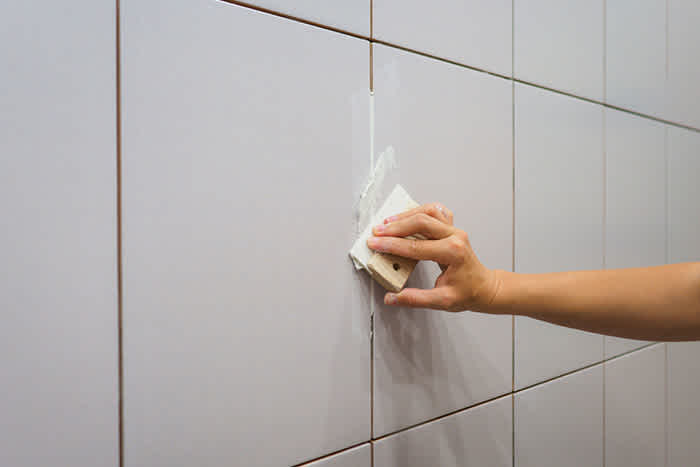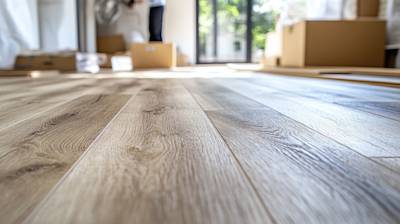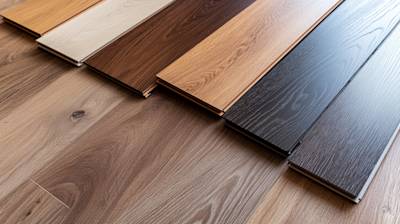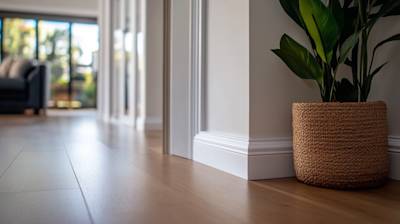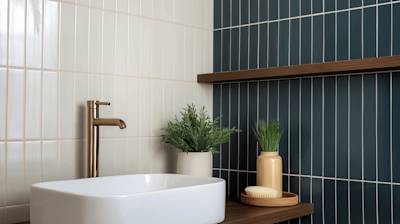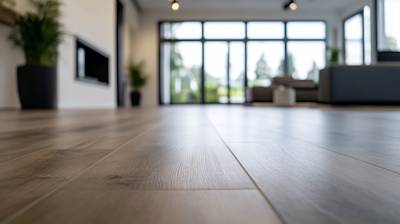Grouting remains a crucial step in the process of tile installation. While numerous grouting options exist, today, we are focusing on epoxy grout, a high-performance alternative to traditional ones. This article will explore epoxy grout, its advantages, usage, and how it compares to other grouting options.
Understanding Epoxy Grout
Epoxy grout is typically composed of epoxy resins and a filler powder. These substances combine to create an extremely durable, waterproof bonding material. Epoxy grout is known for its durability and resilience, capable of withstanding high traffic and humidity as well as resisting staining and discoloration.
Why Choose Epoxy Grout?
Why should you consider epoxy grout for your next tile project? Here are some key benefits:
Superior Durability: Epoxy grout's durability far exceeds that of its cement-based counterparts. This makes it ideal for both commercial and residential settings that see high traffic.
Waterproof: Epoxy grout’s waterproof nature makes it perfect for areas exposed to moisture, such as bathrooms and kitchens.
Stain-Resistant: Unlike the porous cement-based grout, epoxy grout is non-porous, which makes it resistant to staining and easy to clean.
When and Where to Use Epoxy Grout
Epoxy grout's superior qualities make it ideal for a wide range of applications.
General Application
Epoxy grout is suited to a broad array of general applications, including:
- Kitchen backsplashes
- Bathroom and showers
- High-traffic areas
- Outdoor areas
Specific Applications
For specific applications, epoxy grout proves its worth in:
- Industrial settings
- Hospitals
- Schools
- Swimming pools
Applying the Epoxy Grout
Epoxy grout requires a bit more effort to apply than the traditional cement-based grout. However, with the right tools and techniques, you can achieve a perfect finish. Here are the general steps:
- Prepare the Grout: Mix the epoxy resin and filler powder until you attain a uniform consistency.
- Apply the Grout: Apply the grout into the joints using a grout float.
- Remove Excess Grout: Scrap off the excess grout leaving a professional clean finish.
- Clean the Tiles: Wipe the tiles with a damp sponge to eliminate residue, repeating the process until the tiles are clean.
Epoxy Grout versus Cement-based Grout
Compared to cement-based grout, epoxy grout offers enhanced benefits. Where cement-based grout is porous and subject to discoloration and staining, epoxy grout is non-porous. This makes it resistant to staining and discoloration, even without the use of a sealant. Also, unlike cement-based grout, which can crack or break under pressure, epoxy grout showcases excellent durability. Lastly, it is waterproof, aiding in the prevention of mold and mildew.
Frequently Asked Questions about Epoxy Grout
Can epoxy grout be used for all tiling projects?
Typically, epoxy grout can be used for most tiling projects due to its versatile properties. For example, its non-porous and stain-resistant nature can be especially handy for grouting projects in areas where high humidity, constant wet conditions, or possibilities of harsh spills are a consideration. However, every tiling project is unique, and other types of grout may be preferable depending on factors such as the type of tiles, location, and personal preference.
How easy or hard is it to apply epoxy grout?
Applying epoxy grout can be slightly more challenging compared to regular grout due to its thick consistency and quick setting time. It’s common to recommend professional installation, primarily if you haven't worked with epoxy grout before. Yet, if you choose to do it yourself, ensure you follow all steps, including mixing, applying, and cleaning, within the manufacturer's recommended pace to achieve the best results.
Is epoxy grout suitable for outdoor applications?
Yes, epoxy grout can be highly effective for outdoor applications due to its durability, resistance to weather changes, and the ability not to discolor easily. These properties make epoxy grout a suitable choice for outdoor installations where it might be exposed to extreme weather conditions or heavy traffic.
Do I need to seal epoxy grout?
No, epoxy grout does not need sealing. Unlike cement-based grout, epoxy grout is composed of resin and hardener, creating a non-porous surface that is inherently resistant to water and stains. This lack of porousness makes the grouting process relatively easier and eliminates the need for regular maintenance and resealing.
Can epoxy grout change its color over time?
Epoxy grout is famous for its color steadfastness, which means it retains its original color even over an extended period. Unlike traditional grout, which can absorb stains or water causing it to discolor, epoxy grout is non-porous, so it is resistant to such issues.
How often should I clean epoxy grout?
It's good practice to clean your epoxy grout on a regular basis. Yet, cleaning frequencies might hinge on factors such as traffic levels or exposure to dirt and spills. However, due to its stain-resistant nature, epoxy grout does not require intensive cleaning agents or methods. Regular cleaning with mild detergent and a soft cloth or sponge would suffice most times.
Can I replace my regular grout with epoxy grout?
Yes, it is possible to replace regular grout with epoxy grout. It involves removing the old grout completely from the joints before applying the epoxy grout. This process can be labor-intensive and requires specific tools and precision. Therefore, it's advisable to consider professional help for grout replacement unless you have prior experience.
Is epoxy grout safe for all types of tiles?
While epoxy grout is usually harmless to most tile types, it may leave a haze on the surface of certain tiles like unglazed ceramic or natural stone tiles. It is always recommended to do a test spot or to check the manufacturer’s instructions to ensure it is safe for your specific kind of tile.
Pros of Epoxy Grout
1. Durability
The durability of epoxy grout is one of the major benefits of this material. Unlike cement grout, an epoxy variety is far less vulnerable to cracking due to its robust composition. It withstands wear and tear, allowing it to retain its appearance over time. These qualities make it highly resilient and reliable for heavy foot traffic areas or damp locations like bathrooms.
2. Resistant to Stains
Epoxy grout is highly resistant to stains. It creates a barrier that prevents liquid from penetrating beneath the surface, preventing discolorations. It can therefore keep your grout lines looking fresh and bright while ensuring they're easier to clean.
3. Resistant to Water and Moisture
Epoxy grout is waterproof, which is an important factor for areas susceptible to water damage, such as showers, bathrooms, kitchen backsplashes, and swimming pools. This property prevents the growth of mold, mildew, and fungus, protecting the health of your home.
4. Versatility
Epoxy grout is versatile and can be used on a variety of surfaces, including ceramic, porcelain, stone, or glass. Such versatility means that this is a type of grout that can be used for various applications in both commercial and domestic locations.
5. Maintainability
It requires less maintenance compared to other types of grout. Thanks to its stain-resistant and waterproof properties, regular cleaning using gentle substances will keep it looking good as new.
Cons of Epoxy Grout
1. Complex Installation
Installation of epoxy grout can be complex and time-consuming. The mixing process itself requires precision and quickness because epoxy grout sets faster than standard grout. If not properly applied, it could lead to a poor finish effect.
2. Cost
Compared to other forms of grout, epoxy grout is more expensive. While the initial cost may be higher, consider the long-term benefits of reduced maintenance and replacement costs. It may be a larger upfront investment, but it may also save you money in the long run.
3. Difficult to Remove
Epoxy grout is almost impossible to remove once it has set. This could complicate the replacement of tiles or the rectification of any grout-related errors. Specialized chemical products and equipment may be necessary for removal, adding extra costs and time.
4. Limited Grout Colors
Typically, epoxy grout is only available in a limited range of colors compared to cement-based grouts. This might restrict the aesthetic options when it comes to matching the grout with the hue or color palette of the tiles or surrounding décor.
5. Allergic Reactions
Although this is not common, the chemicals in epoxy grout can cause allergic reactions in some people. Symptoms can range from skin irritation to respiratory distress. Therefore, it is important to use protective clothing and gear when applying this type of grout.
6. Potentially Unpleasant Odor
Epoxy grout can have a strong and potentially unpleasant odor during its application due to the presence of chemicals. The smell usually dissipates after the grout dries, but it can be bothersome during the installation process.
In conclusion, while epoxy grout comes with its fair share of pros and cons, it's a robust and durable choice for grouting tiles in various applications.
Summary
Epoxy grout is certainly the way to go if you're looking for a durable, long-lasting solution for your tiling needs. It has the ability to resist spills and stains like a champ, while still maintaining its original color and shine. So if you want to save yourself the trouble of regular maintenance, or frequent grout replacement, epoxy grout would be an ideal choice.
While epoxy grout can be a tad more complicated to work with compared to traditional grout, the benefits it offers are well worth the minor inconvenience. Imagine not having to worry about water seepage or grout deterioration. Thanks to its waterproof and chemical-resistant attributes, epoxy grout ensures your tiles stay put for years, making it a favorite among professional installers and DIY enthusiasts alike.
And remember, even though epoxy grout might be a little more costly upfront, the value it delivers in the long run far outweighs the initial cost. It preserves the aesthetic appeal of your tiles, holds up well under varying conditions and promises minimal upkeep. To put it plainly, epoxy grout might just be the high-performing grout solution you've been looking for.
About Solid Construction & Design
At Solid Construction & Design, we're more than just a construction company in Sacramento, CA - think of us as your partners in transforming your living space. We proudly bring three generations of experience and a commitment to delivering top-grade workmanship to every project. Whether you're dreaming about a kitchen redo, bathroom refresh, or a complete home remodel, we're here for you. Our dedicated team prides itself on our customer-first approach and complete transparency throughout the journey. Come join the family at Solid Construction & Design - let's build something amazing together!

